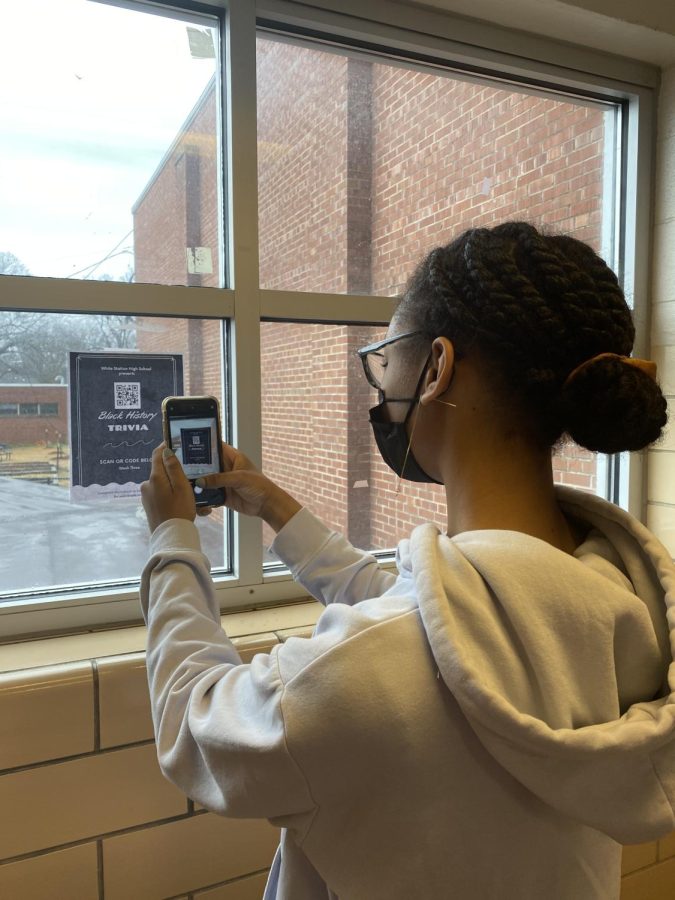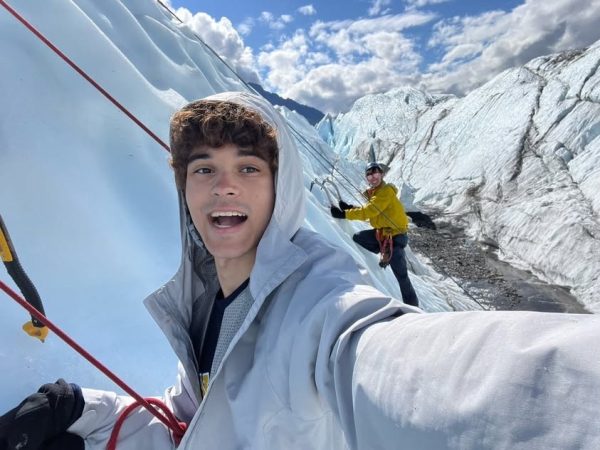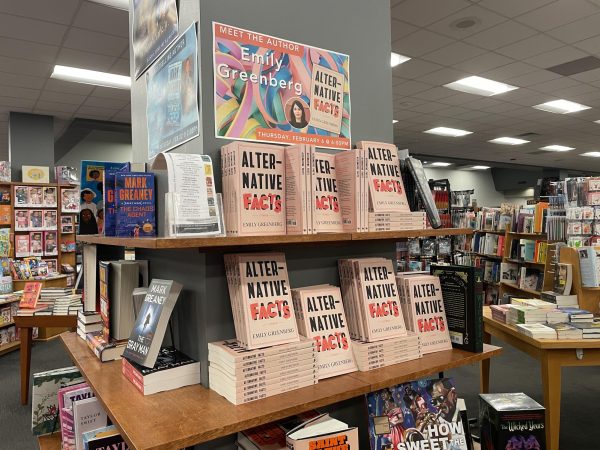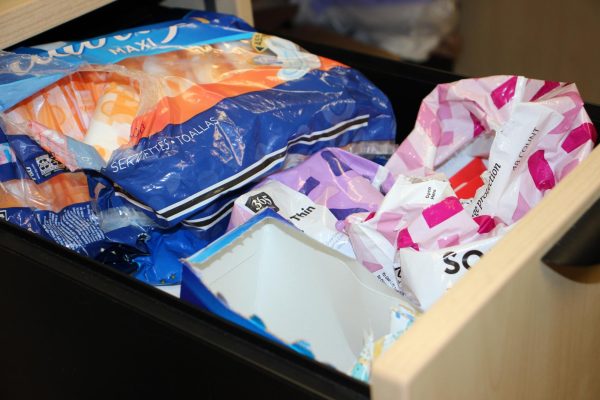Mary E. Pittman brings a new perspective on black history to White Station High School
Rebekah Butler (11) holds up her phone to scan a QR code to a black history trivia contest. Thanks to the efforts of Mary E. Pittman (12), events such as this have been planned throughout February to celebrate Black History Month.
If you scan one of the many QR codes lining the hallways of White Station High School, you may find yourself with the chance to learn something new. As one of several projects intended to teach often overlooked parts of black history, these codes invite students to play trivia games, quizzing them on important black historical figures and events. For the organizer of these projects, Mary E. Pittman (12), they serve as a valuable way to teach others about black history. Growing up, stories told to her by her history-teacher mother as well as her involvement with the Pan-African club and black history program at her middle school helped foster an interest in black history. Joining the JROTC program in highschool narrowed that interest down to military history and helped encourage her to educate others about this often overlooked topic.
“Instead of giving the same perspective that we’ve been getting over the years, learning about the same figures in black history… yes they’re important, but we want to give a new perspective,” Pittman said. “Especially in [the] United States’ history, black people have contributed so much to our society, it’s the foundation of our nation and we need to learn the history behind it.”
These trivia games are just the start as Pittman has organized several dress up days and a hall of fame in the JROTC building showcasing important figures, events and places from black military history.
“We’re going to touch on historically black colleges and universities with ROTC programs, we’re going to talk about various military service academies such as West Point or The Citadel or Naval Academy,” Pittman said. “We’re also going to touch on various black platoons such as the Buffalo Soldiers or even the Tuskegee AirMen.”
To those working on them, these projects are an opportunity to shine light on those buried by history, the forgotten people whose contributions shape our lives.
“Black people have made so many contributions to the world, to America, and I feel like you only get the negative things,” Maya Watt (12) said. “And even though those are very important things which should be taught in full, all the contributions we’ve made to technology and medicine and science isn’t taught like it should be.”
While White Station offers African-American history as an available elective, the number of people who can take it is limited. Many students are unaware that the class even exists and instead receive a history education that does not dive into the nuances of black history.
“I feel like black history is so important to American history that making it an elective is pushing it to the side,” Watt said. “There’s really not an opportunity for many students to get it, maybe in a year, you get 200 students who take it out of 2000.”
One part of black history that Pittman feels is particularly overlooked is women’s history.
“I feel like women’s history isn’t really known, you don’t know the details like you know about men’s history,” Pittman said. “Getting the perspective of black women in our history is so important.”
While COVID has limited Pittman’s plans, in the future she hopes to reach audiences broader than just White Station. For her, educating people is an important way to fight ignorance and help give a view of history that is not written by the majority.
“Most of the time [that] I’ve gone to school, I was not really the majority, I was the minority,” Pittman said. “I feel like being in the situation I’m in, being a black female and being able to educate people on the truth of black history and not the watered-down version is better than hearing what’s passed through from the majority, it’s getting a minority perspective.”
Your donation will support the student journalists of White Station High School. Your contribution will allow us to purchase equipment and cover our annual website hosting costs.






































